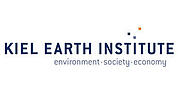
Climate
One of the biggest threats for sustainable development and long-term global economic growth rises from unmitigated anthropogenic climate change. A majority of countries have ratified the UNFCCC Paris Agreement, setting out the challenge to limit the global average temperature increase to well below 2°C relative to the preindustrial level. Yet, current national and international climate policies are characterized by a mixture of poorly coordinated instruments, representing a compromise between economic theory and political reality. Furthermore, , even with globally coordinated and ambitious climate policies, achieving and maintaining the 2°C target hardly seems to be a realistic option without large-scale deployment of negative emissions technologies like BECCS or direct air capture. Accordingly, any efficient approach to carbon budget management requires the full carbon perspective, which considers the carbon storage potential of the terrestrial biosphere and the ocean.
We analyze
- the effectiveness, efficiency, and distributional implications of national and in particular international climate policies (applying in particular the computable general equilibrium model DART)
- the potential and risks associated with negative emissions and solar radiation management technologies, and
- these technologies’ public acceptance and their perception as options complementing current climate policy.
Head
Contact
Team
Initiatives & Networks







